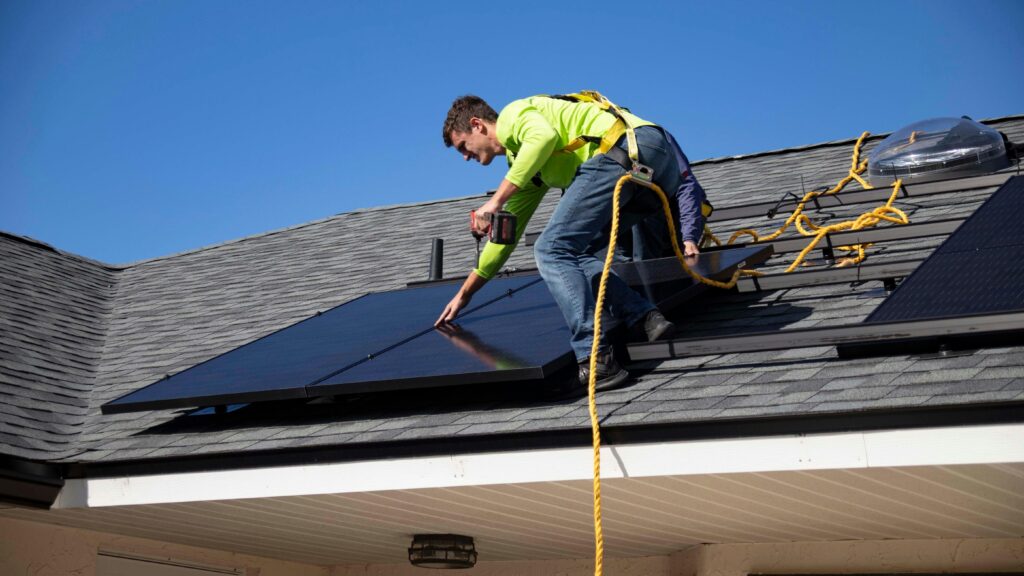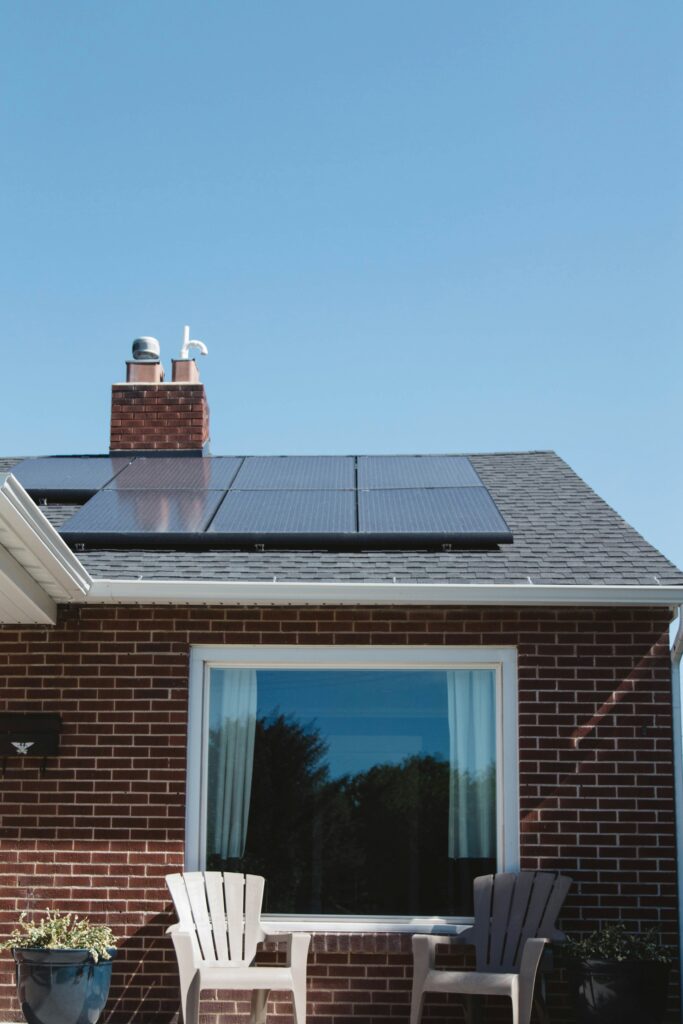Self-consumption of electricity at home
What is it and who can have a photovoltaic self-consumption system at home?

Self-consumption of electricity means the production of electricity for own consumption. Currently, any electricity consumer can generate their own electricity with a self-consumption installation connected to the grid. At the domestic level, self-consumption is mainly carried out by means of small-scale solar photovoltaic installations. It is also possible for different consumers to share a self-consumption system.

With the self-consumption installations the total or partial coverage of the electricity consumption of the dwelling, the community of neighbours, the building or any consumer centre can be covered.
When the generation system does not produce sufficient energy, electricity can continue to be consumed through the grid and, in certain cases, when production exceeds demand, it is possible to feed the surplus into the grid.
There are several tools for calculating a self-consumption installation, such as the Calculator of a solar photovoltaic installation for self-consumption of electricity from the Association of Spanish Energy Management Agencies.
Anyone can generate their own electricity and consume it at home.

Harness all the energy with batteries.
It is very useful to have batteries in a self-consumption installation, as it allows us to store surplus electrical energy at times of lower consumption in order to use it at times when we do not have our own generation. We can even use the batteries of the electric car to store it! The generalisation of photovoltaic self-consumption installations on roofs and rooftops with batteries will facilitate the creation of solar communities of citizens who actively participate in the new energy model.
The generalisation of self-consumption photovoltaic installations on roofs and rooftops with batteries will facilitate the creation of solar communities of citizens who actively participate in the new energy model.
Self-consumption: all advantages.
Self-consumption has several advantages both from a global point of view and from the particular point of view of the consumer and the electricity system:
It favours the digitalisation of energy and smart grids.
It reduces fossil fuel consumption and external energy dependence.
It contributes to the decarbonisation of energy and the improvement of air quality.
It stimulates economic and industrial activity and encourages the creation of jobs that cannot be relocated.
It saves energy and money for the consumer.
It puts consumers in control of their energy management and promotes citizen empowerment in the energy model.
It opens the door to electric vehicles with zero-kilometre energy.
It does not involve an economic cost regulated by the electricity system and does not require premiums for its economic profitability.
It reduces losses associated with the transmission and distribution of electricity.
It helps to reduce saturations in the distribution network.
It helps to reduce the marginal price of the electricity market.
Solar photovoltaic energy contributes to the coverage of peak demand in summer.
It contributes to distributed electricity storage.





